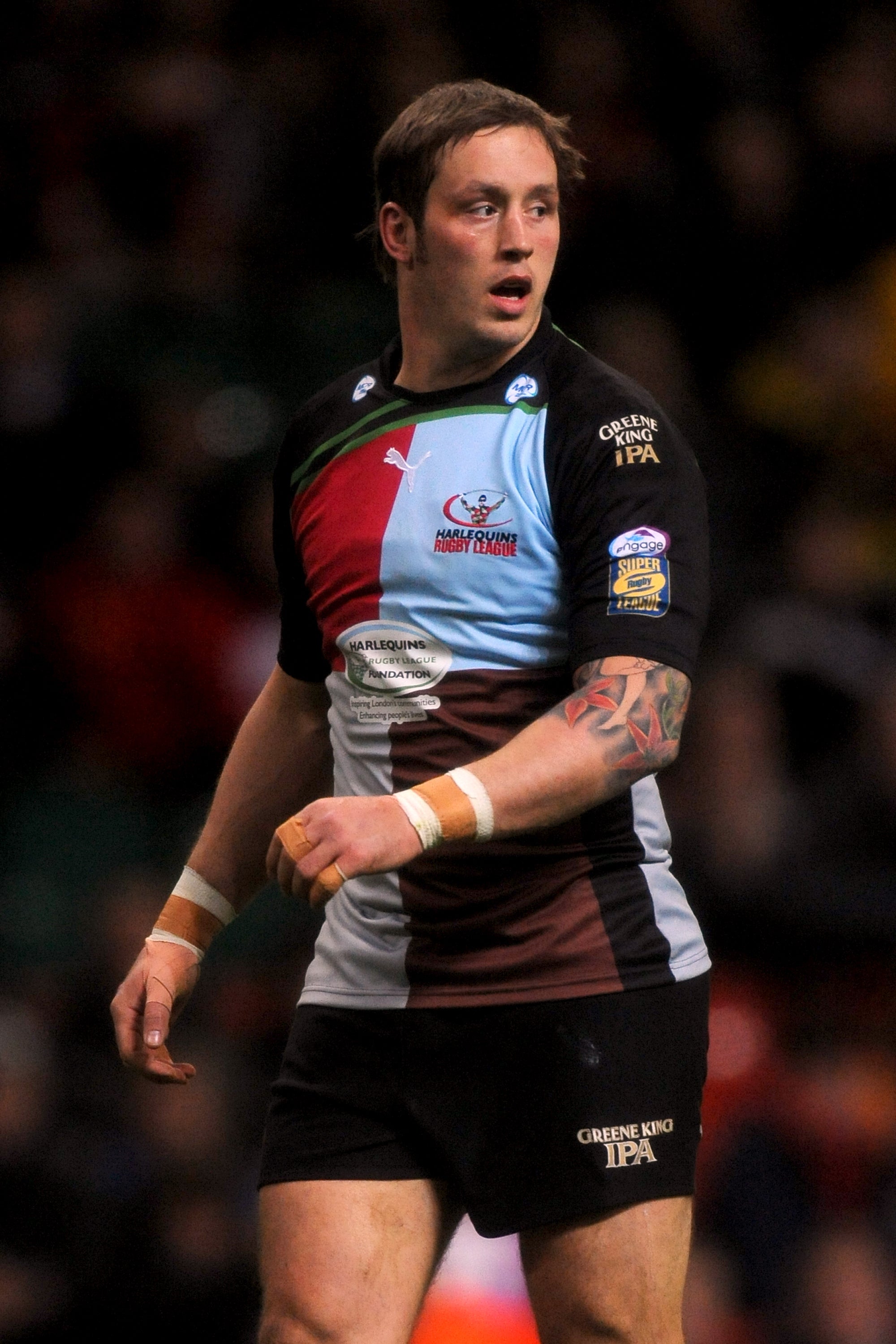Former international player Oliver Wilkes admits performance-enhancing drug use
Rugby League is the third most tested sport by UKAD.

Your support helps us to tell the story
From reproductive rights to climate change to Big Tech, The Independent is on the ground when the story is developing. Whether it's investigating the financials of Elon Musk's pro-Trump PAC or producing our latest documentary, 'The A Word', which shines a light on the American women fighting for reproductive rights, we know how important it is to parse out the facts from the messaging.
At such a critical moment in US history, we need reporters on the ground. Your donation allows us to keep sending journalists to speak to both sides of the story.
The Independent is trusted by Americans across the entire political spectrum. And unlike many other quality news outlets, we choose not to lock Americans out of our reporting and analysis with paywalls. We believe quality journalism should be available to everyone, paid for by those who can afford it.
Your support makes all the difference.Former Scotland international Oliver Wilkes has revealed he used performance-enhancing drugs during his career and has urged aspiring players not to follow in his footsteps.
The 41-year-old represented Super League sides Huddersfield, Wigan and Wakefield in addition to several other clubs during a playing career which lasted two decades.
In an interview published on Tuesday, Wilkes explained how he was guilty of doping when playing for Whitehaven in 2006 and within six weeks had earned a contract with boyhood side Wigan.
While the forward did not suggest any of his former clubs knew he or other unnamed team-mates were doping, the Cumbrian is eager to create change.
“I don’t want young lads to go into the game feeling like they have to do something that is not right to get where they want to be in the game but their spot is being taken by someone that is doing it,” Wilkes told ITV.
“I don’t want them to have to feel like that. I just want them to look at that person and say I want to be him and I know I can do it because I know I don’t have to cheat.”
He continued: “At one stage I thought to myself how am I going to compete with that person knowing they are doing what they are doing? And this was before I tried it (performance-enhancing drugs) myself.
“You knew someone was using something and you knew you were as good as them but they were getting picked so you would think to yourself is that what I have to do to get in the team? Do I have to take something?”
UK Anti-Doping (UKAD) announced last month Jamie Acton, formerly of Leigh, was to serve a two-year ban from all sports after re-analysis of a sample showed up the presence of a banned substance.
Acton subsequently said in an Instagram post: “You’re probably abnormal in the rugby world if you haven’t taken drugs at some point either socially or performance enhancing throughout your career.
https://www.instagram.com/p/CY4W1HNBj1o/
“I think it is important for ex-players and current players to talk about their own experiences and try to help younger players learn from our faults. What I did was wrong, if I had my time again, I wouldn’t do it.”
UKAD has reiterated its strong stance against cheating and Wilkes has been urged to get in touch through their Protect Your Sport reporting mechanism.
“We take all information regarding possible doping in sport very seriously and encourage anyone with information to search Protect Your Sport and pass that information on to us, in confidence,” a UKAD spokesperson told the PA news agency.
“In 2021, as part of its intelligence-led and risk-based testing programme across all sport, UKAD conducted over 600 tests in Rugby Football League (RFL), making it the third most tested sport by UKAD, after Football and Rugby Union.
“UKAD prosecutes athletes who fail and evade tests and removes from sport those who cheat.
“Samples from many athletes are also kept in long-term storage for reanalysis at a later date. UKAD recently successfully prosecuted a former Rugby League player following sample reanalysis.
“In the last five years, UKAD has published decisions confirming 14 bans to Rugby League players.
“It is important to note that testing alone does not make a robust anti-doping programme. We work closely with the RFL to ensure their education programmes make athletes and support staff aware of their responsibilities to clean sport and the risks involved in taking prohibited substances.”
A statement from the Rugby Football League added: “The RFL condemns drug use in sport as doping is harmful to the core values of rugby league.
“It is damaging to players’ health and wellbeing, the fairness and integrity of the competition and prevents all from the right to participate in a doping-free competition.
“The RFL works closely with UK Anti-Doping (UKAD) with all alleged breaches of the anti-doping rules being referred to and investigated by UKAD.”
It continued: “We actively encourage anyone who has any concerns regarding doping to report them. The RFL passes any intelligence in relation to any anti-doping complaints or concerns, to UKAD.
“UKAD also has a confidential hotline which allows anyone to report concerns direct to UKAD.”